
Dinosaur families chose to exit Europe
Researchers have used ‘network theory’ for the first time to visually depict the movement of dinosaurs around the world during the Mesozoic Era – including a curious exodus from Europe. The research, led by the University of Leeds and published in the Journal of Biogeography, also reaffirms previous studies that have found that dinosaurs continued to migrate to all parts of the world after the ‘supercontinent’ Pangaea split into land masses that are separated by oceans.
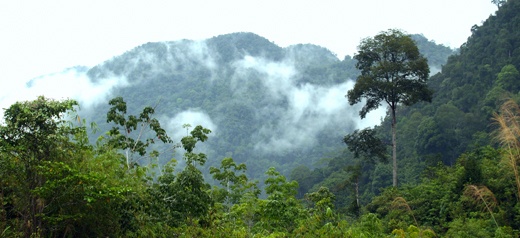
Animals’ role in mitigating climate change varies across forests
Large animals play a key role in mitigating climate change in tropical forests by spreading the seeds of large trees that have a high capacity to store carbon, new research has found. The research, co-led by the University of Leeds and published in the journal Nature Communications, sheds important new light on the role seed dispersal by animals plays in mitigating climate change, and how this role can vary in tropical forests across the world.
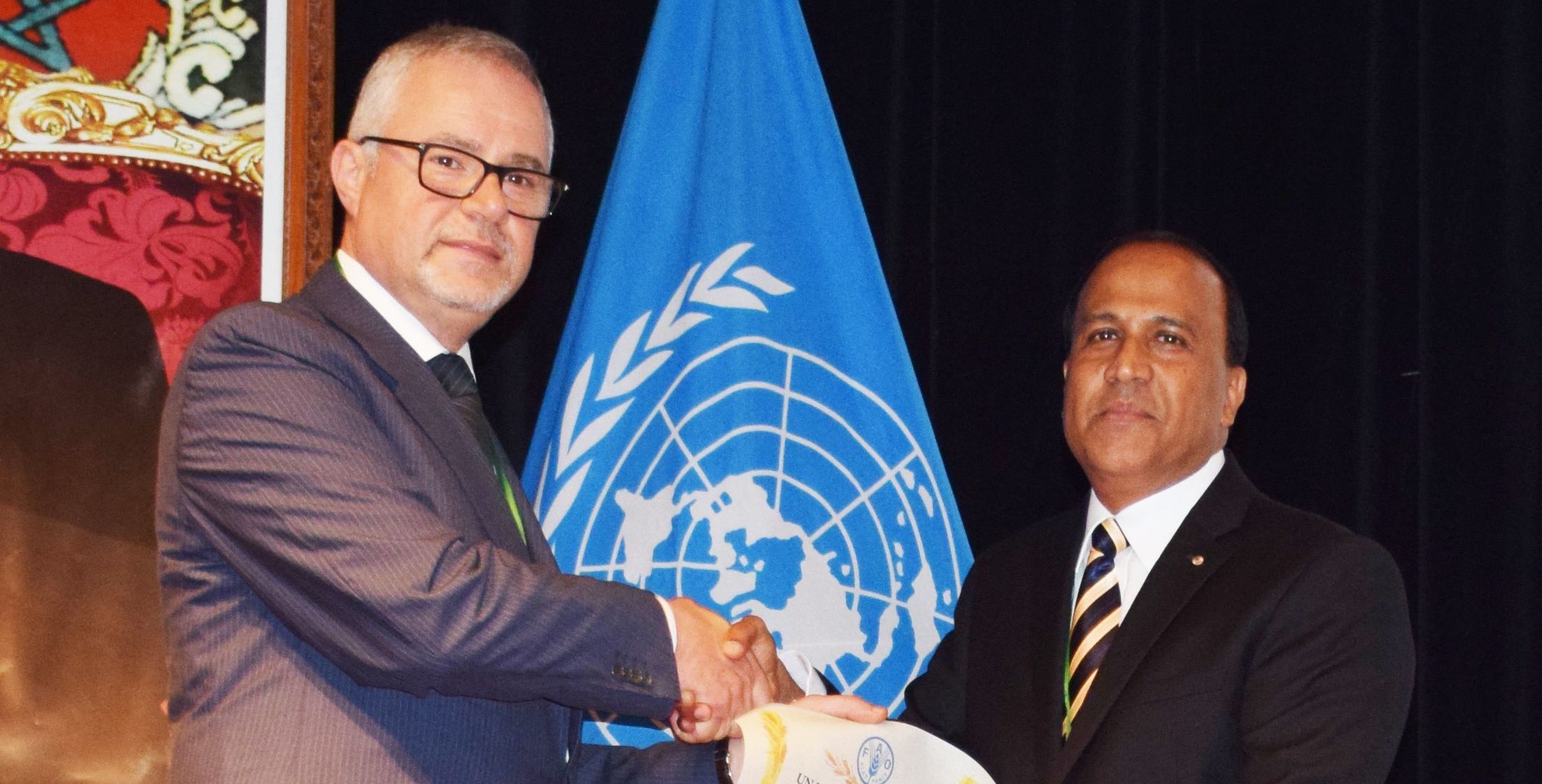
UWA Professor named FAO Special Ambassador for Pulses
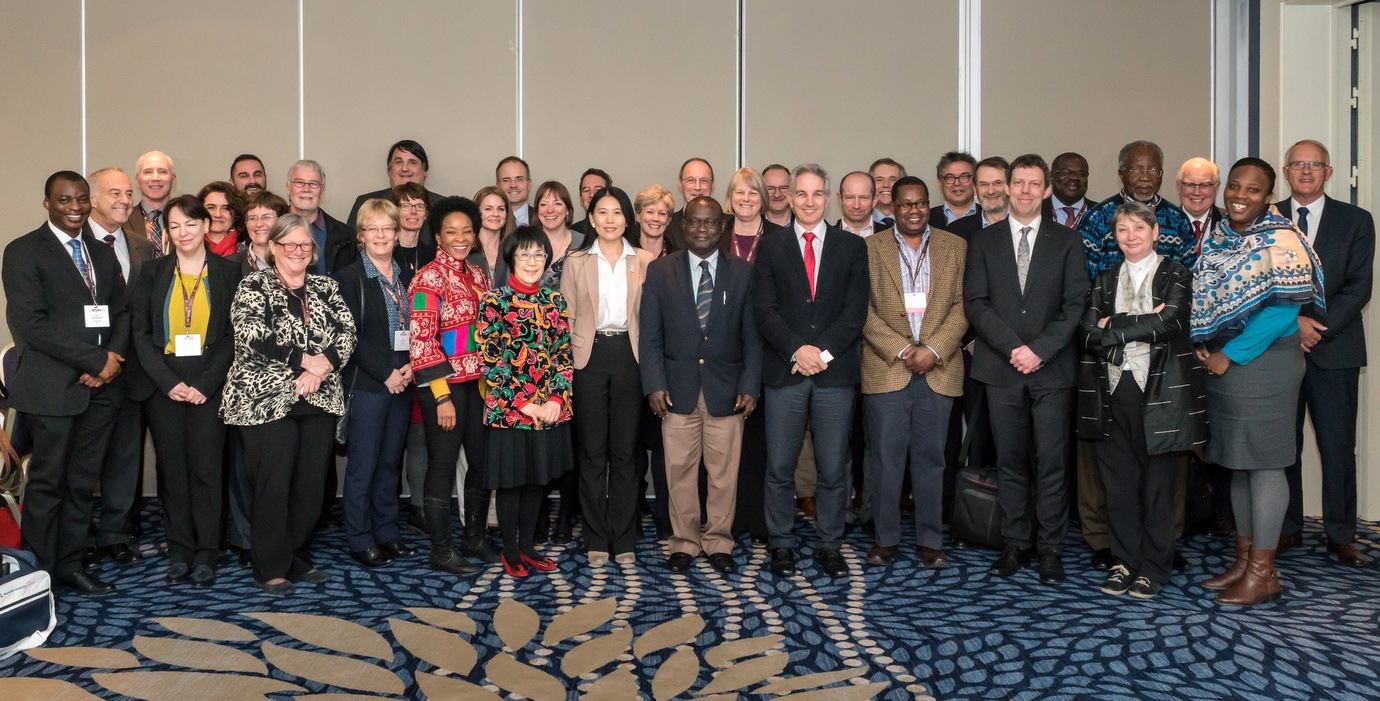
Bridging Policy and Academia at the Sixth Annual Presidents Forum
On 7 April, WUN Presidents, as well as distinguished representatives from the European Parliament, European Commission, European Research Council and national embassies, convened in Brussels for the sixth annual WUN Presidents Forum. Titled ‘Open Doors: European Opportunities in Research & Education,’ the Forum took place alongside the WUN Conference and AGM 2016.
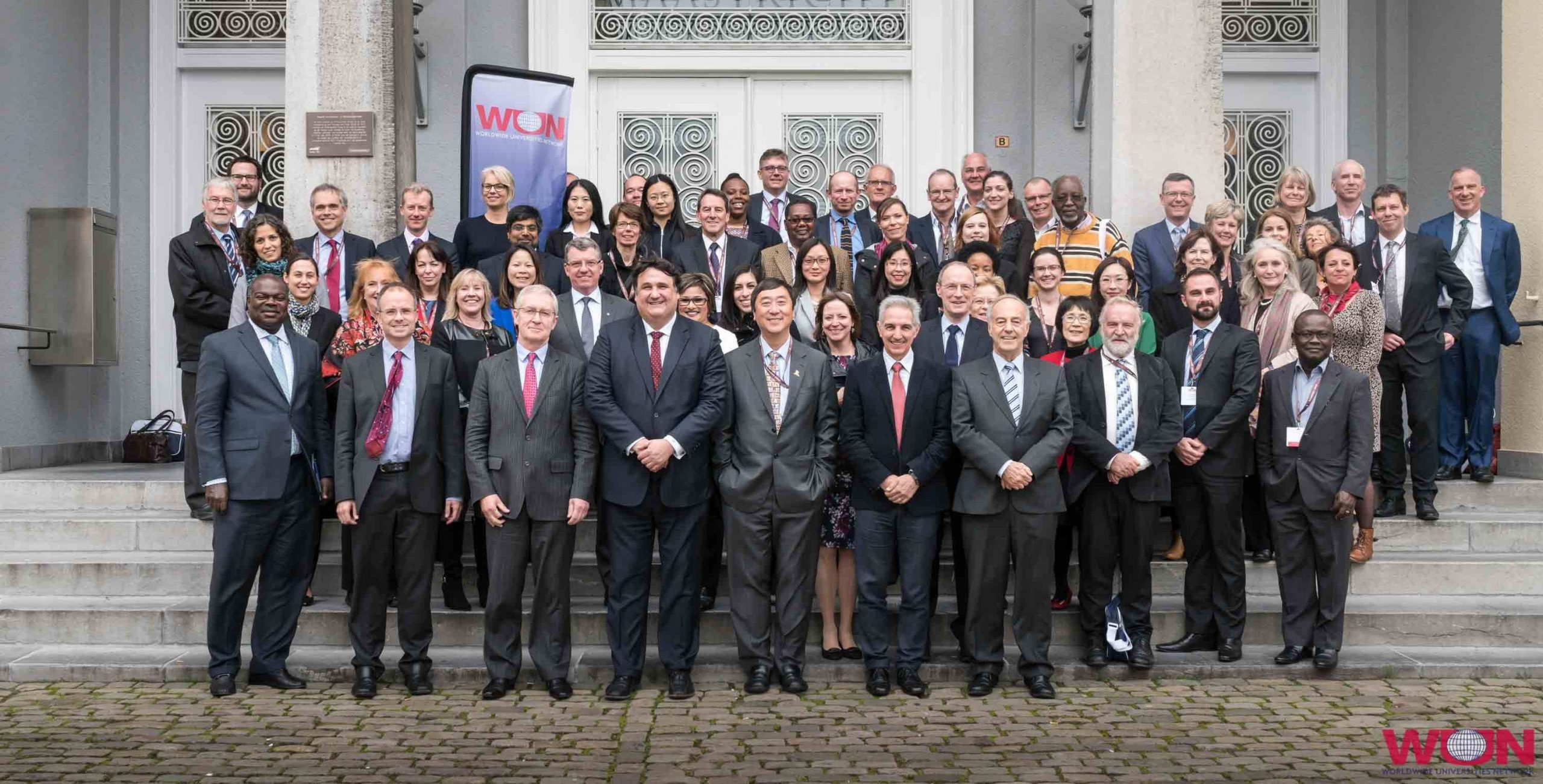
WUN Conference & AGM 2016 Takes Place at Maastricht University
From 2-7 April, close to 400 academics and university leaders from around the world participated in the WUN Conference & AGM 2016, hosted by Maastricht University.
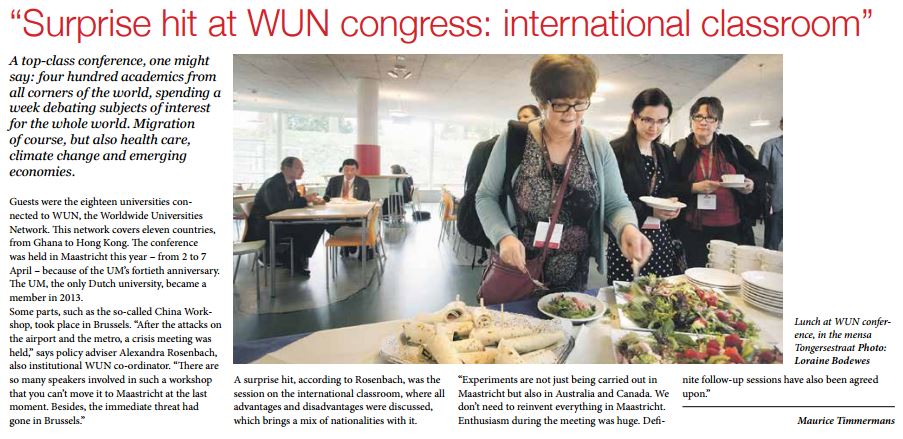
Surprise hit at WUN congress: international classroom
A top-class conference, one might say: four hundred academics from all corners of the world, spending a week debating subjects of interest for the whole world. Migration of course, but also health care, climate change and emerging economies.

The Sixth Annual WUN Presidents Forum to Convene in Brussels
On 7 April, WUN Presidents, as well as distinguished representatives from the European Parliament, European Commission and European Research Council, will convene in Brussels for the sixth annual Presidents Forum.
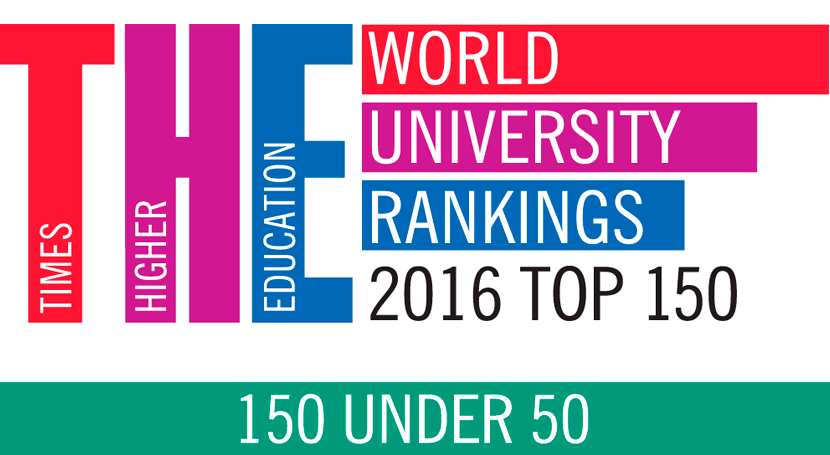
Maastricht University Ranked as World’s Fourth Best Young University
Maastricht University (UM) has climbed to the fourth place in the Times Higher Education (THE) 150 Under 50 ranking for best young universities in the world. After maintaining the sixth place since 2013 in the former THE 100 under 50, this fourth place can be considered as a compliment and congratulations in Maastricht Universities 40th anniversary year. The list has been published at the Young Universities Summit in Barcelona on April 6th.
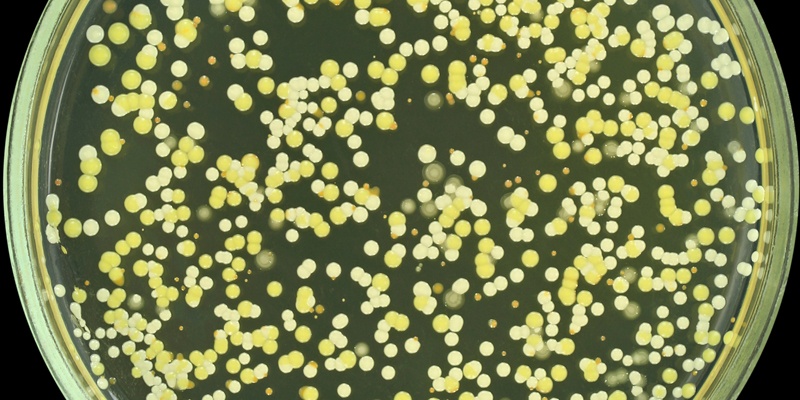
Unravelling the secret of antibiotic resistance
Scientists from the University of Leeds have solved a 25-year-old question about how a family of proteins allow bacteria to resist the effects of certain antibiotics. Proteins of the ABC-F protein family are a major source of antibiotic resistance in ‘superbugs’ such as Staphylococcus aureus, a group of bacteria that includes MRSA. The findings, published in the American Society for Microbiology journal mBio, provide the first direct evidence of how this family of proteins ‘protect’ the bacterial ribosome, the protein makers in cells, from being blocked by antibiotics.
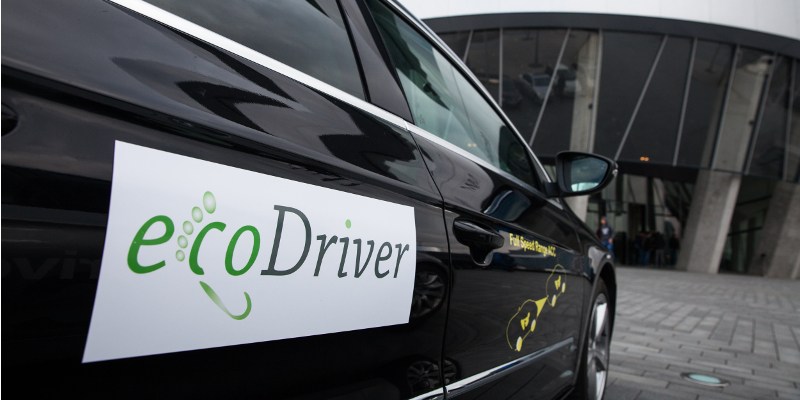
Cutting fuel costs and CO2 emissions
Cars of the future which advise how to drive more safely and economically could bring significant cuts in fuel consumption and emissions. Eco-driving systems offer visual guidance to drivers, usually built in to satellite navigation systems or via smartphone apps. The systems are not yet widely available, but manufacturers are looking at installing them in their next generation of cars.The ecoDriver project, led by the Institute for Transport Studies at Leeds with industry partners including BMW, Daimler, CRF (Fiat-Chrysler) and TomTom Telematics, showed that drivers of cars which had such systems installed saved an average of 4.2% in fuel and CO2 emissions, with an even higher saving of 5.8% on rural roads.
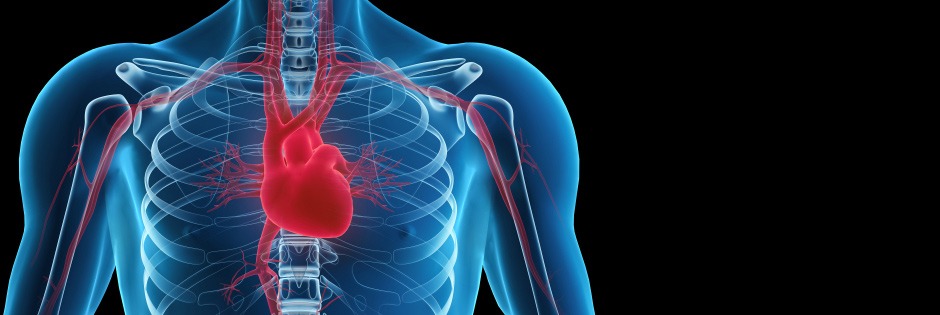
New study finds vitamin D3 improves heart function
A daily dose of vitamin D3 improves heart function in people with chronic heart failure, a five-year University of Leeds research project has found. Dr Klaus Witte, from the School of Medicine and Consultant Cardiologist at Leeds Teaching Hospitals NHS Trust, led the study, known as VINDICATE. He said: “This is a significant breakthrough for patients. It is the first evidence that vitamin D3 can improve heart function of people with heart muscle weakness – known as heart failure. These findings could make a significant difference to the care of heart failure patients.”
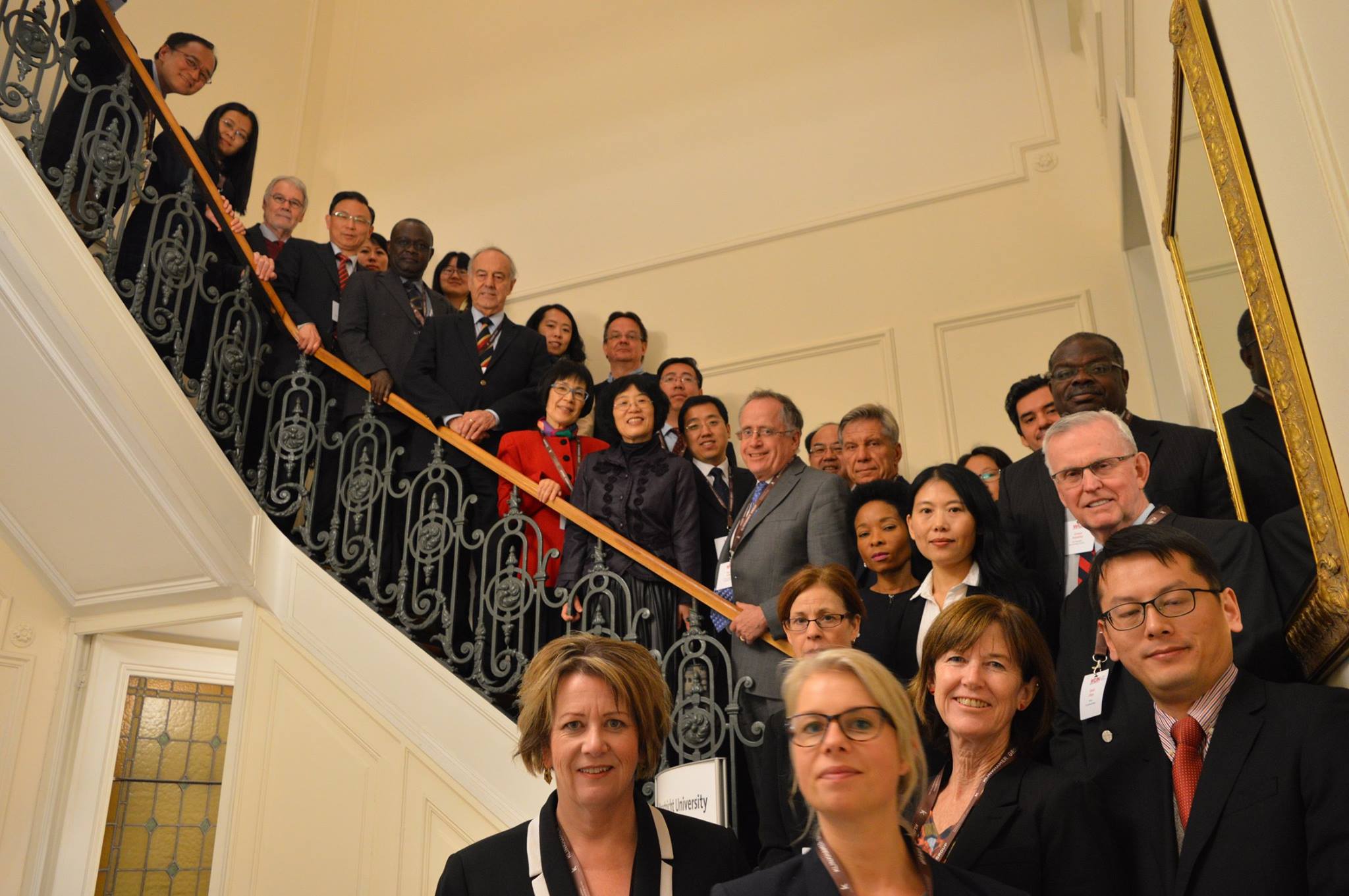
Building Bridges Between China and the World
On 4 April, # international researchers came together at the second WUN China FDI Workshop to examine the progress of President Xi Jinping’s Belt and Road Initiative, which is designed to build knowledge and innovation partnerships and accelerate business development.
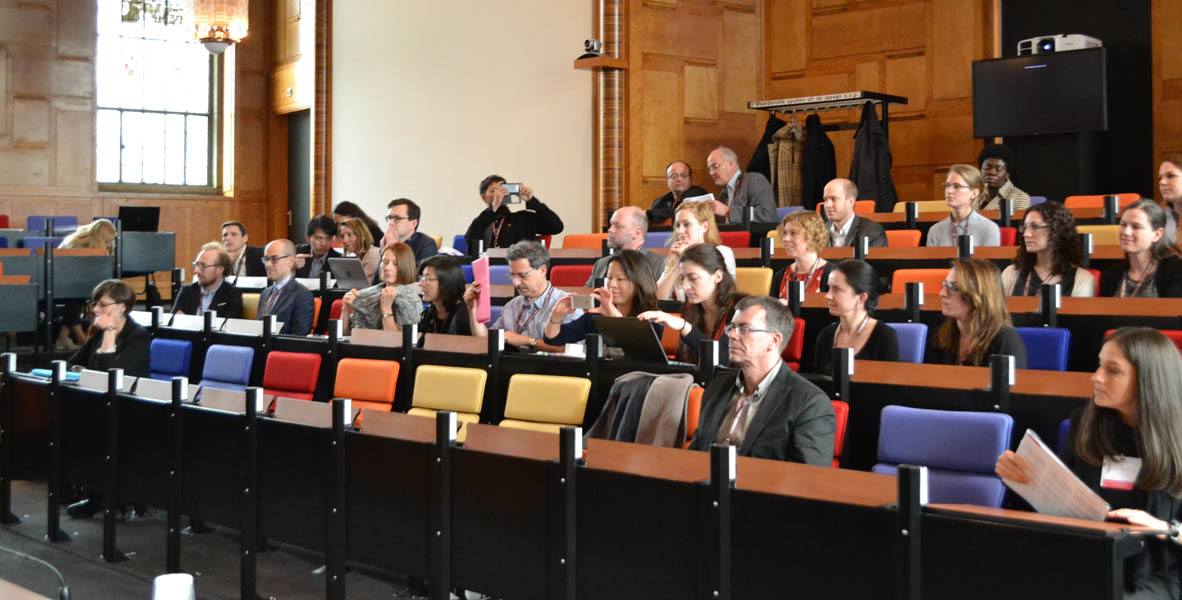
WUN Contributes to Global Policy Agenda in Maastricht
On 2-7 April, close to 400 academics and university leaders from around the world will descend on Maastricht for the WUN Conference & AGM 2016, hosted by Maastricht University.
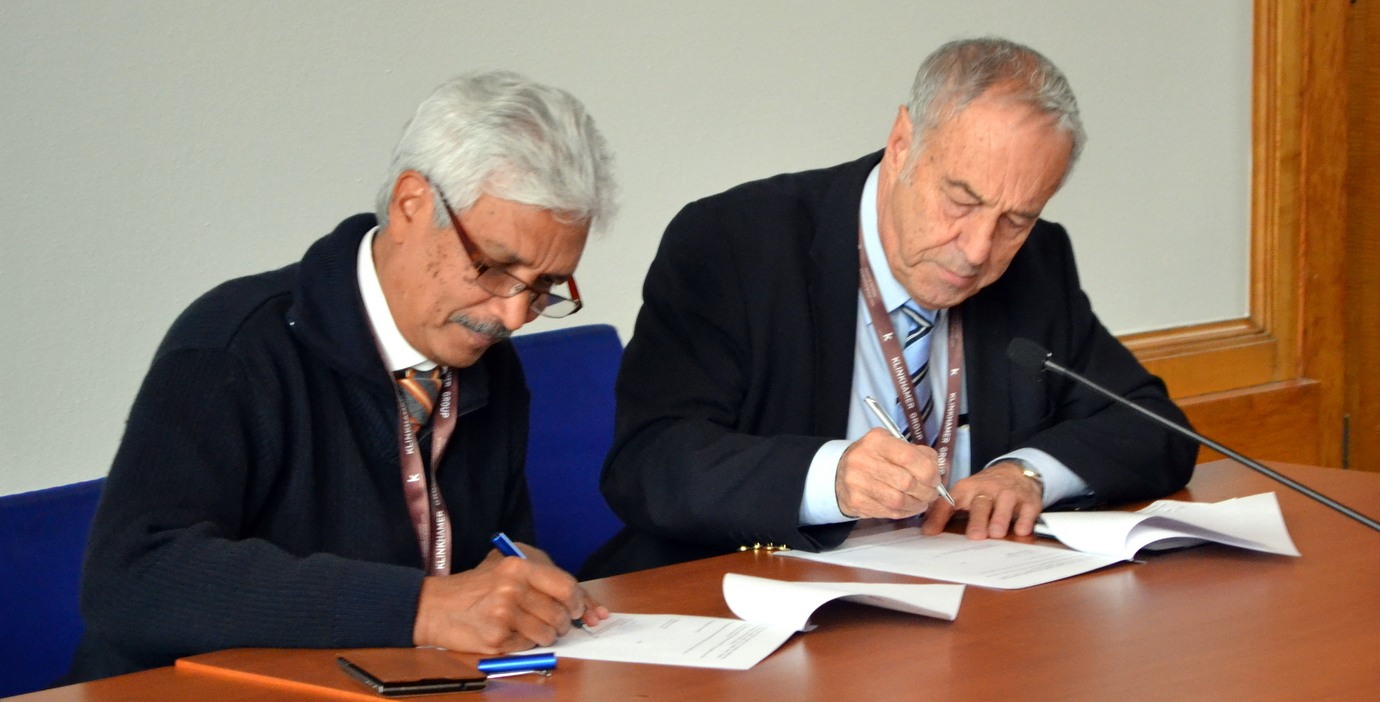
WUN Forms Strategic Alliance with International Organization for Migration (IOM)
On 2 April, the Worldwide Universities Network (WUN) and the Global Migration Data Analysis Centre in Berlin of the International Organization for Migration (IOM GMDAC) signed a collaboration agreement at the second WUN Migration Conference in Maastricht.